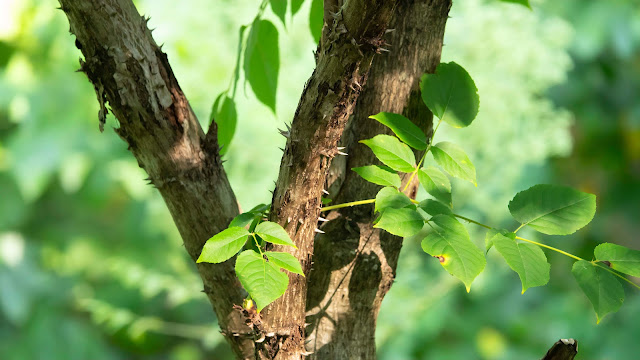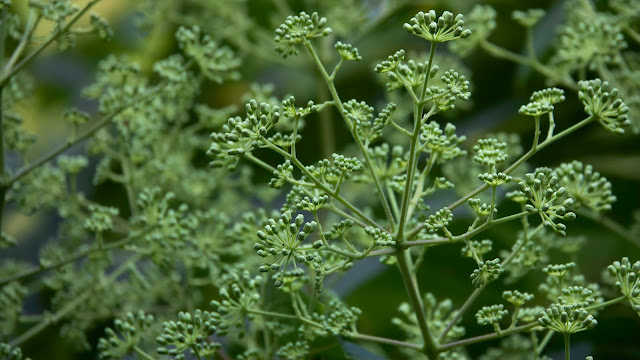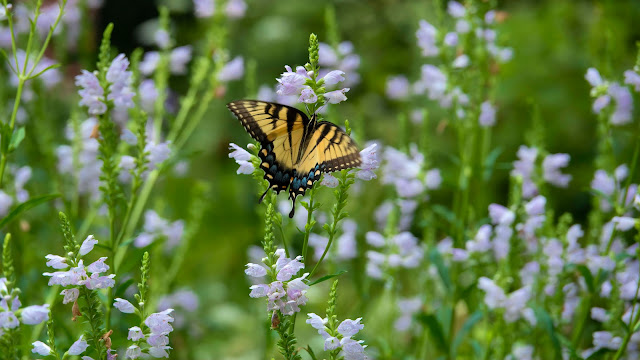I go upstairs and look down from the guest bedroom window. When my husband's nephew stayed with us last year after a broken bone accident, he would watch from the guest bedroom window the dance of the pollinators on the blooms of the devil's walking stick. It is a peaceful, healing, and soothing pastime.
I go outside in the early morning for better photos. The air is thick but not cloying. The temperature is warm but not hot. The cicadas are working hard at their percussion jazz concert and their buzzing fills the air. The young osprey is celebrating his/her ability to catch fish and fly high overhead and chirps continuously like some very happy teenager at a game win. A single vulture quietly circles high above in slow circles against a clear blue sky.
I walk around the house camera in hand.
This shrub is a native and perhaps considered a weed, but it IS a native. (I have written about this before.) The common name Devil's Walking Stick is due to the nasty thorns on the bark. If you bump against it or accidentally grab it, you are in for some pain.
This Auralia is just about to bloom. It starts with a mass of white buds at the very top. Soon the pollinators will move in and cover each flower with their busy harvesting. Today the yellow swallowtail butterflies drift gently over the buds waiting for dinnertime. They resemble a gentle yellow leaf fall and after checking ever so briefly move on to my Physostegia virginiana - obedient plant.



















